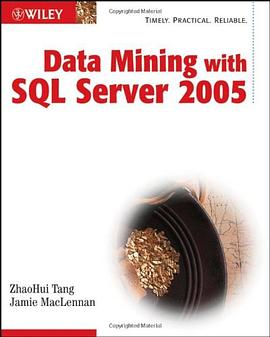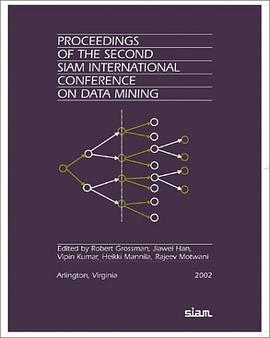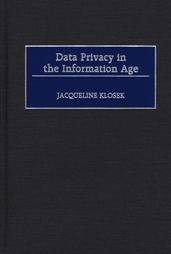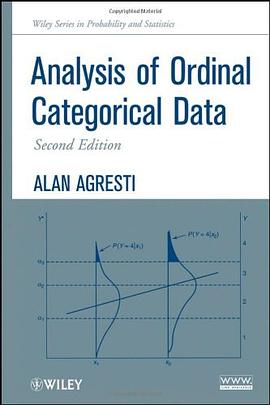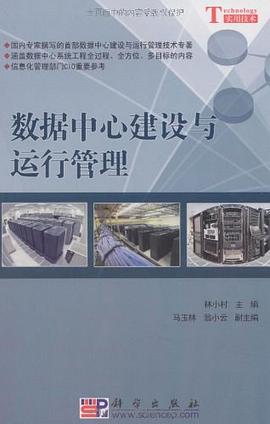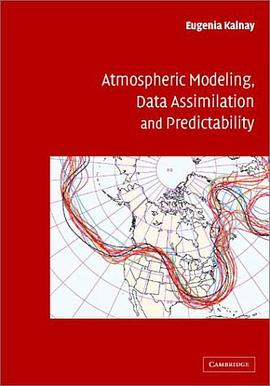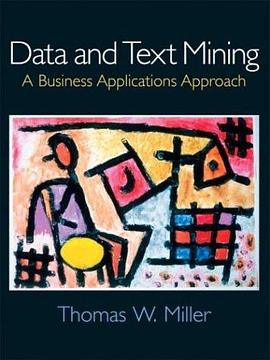

具体描述
Firms collect consumer responses from telephone, mail, and online surveys. They scan data from retail sales. They record business transactions and log text from focus groups, online bulletin boards, and user groups. Spurred on by lower costs of data acquisition, storage, retrieval, and analysis, business databases grow larger each day. Business managers work in a world in which data are plentiful and well-formulated theories rare. This is a world well suited to data and text mining. Data and text mining represent flexible approaches to information management, research, and analysis. They are data-driven rather than theorydriven. They rely upon powerful computers and efficient algorithms. Relatively new and little understood by business and marketing managers, data and text mining are important enough to require an adequate introduction. That is the reason for this book. This book advocates a disciplined approach to data and text analysis. It is through the development of meaningful models that data and text mining contribute to information management, research, and analysis. Models should fit the data, yielding small errors of prediction and classification. Models should be as simple as possible because simple, parsimonious models are easy to understand and use. Model selection in data and text mining is a matter of striking the proper balance between fit and parsimony. When analysts strike the proper balance, they develop models with explanatory power. To serve as a business introduction to data and text mining, a book cannot rely upon statistics and computer algorithms alone. A business book must give students a feeling for the work of data and text mining and how it serves business needs. This book focuses upon business applications, including customer relationship management, database marketing, consumer choice modeling, market segmentation, market response modeling, sales forecasting, and the analysis of corporate databases. It reviews traditional and data-adaptive methods and shows how the results of data and text mining can be used to guide business decision making. The book provides an introduction to data and text mining methods and applications. It shows how to use tools for data manipulation and integration, statistical graphics, traditional statistics, and data-adaptive methods. It shows output from data and text mining programs and reviews the literature, citing relevant books and articles in business, marketing research, statistics, computer science, and information management. The book draws upon a rich set of business cases and data sets described at length in Appendix A. Cases promote experiential learning; students learn about data and text mining by doing data and text mining. Case documentation and data sets have been placed in the public domain, available on the Web site for the book. Additional cases and discussion are provided in Miller (2004). Data and text mining offer great promise as technologies for learning about customers, competitors, and markets. But having the ability to organize and analyze large quantities of data does not excuse us from our obligation to conduct research in a responsible manner. Appendix B reviews the important topic of privacy in business research. Recognizing that business and research professionals have strong feelings about computing software and systems, our coverage of data and text mining topics is sufficiently broad to accommodate users of many systems. The Web site for the book provides data, documentation, and examples for use with various software systems. Examples in the book were prepared using S-PLUS, Insightful Miner, R, and Perl. Many leading researchers in statistics use S-PLUS and R, providing a substantial body of public-domain code for data mining applications. The Perl user community provides an extensive set of utilities for text processing. By relying upon public-domain systems and code, we can do more work for less cost, and we can write programs that run on many computer platforms. Both R and Perl, for example, have Apple Macintosh OS X, Microsoft Windows, Linux, and Unix implementations. The book can serve as a textbook in business, marketing research, statistics, management information systems, computer science, information science, quantitative methods, decision science, and operations research. It may be used as a standalone introduction to data and text mining or as a technical reference for practitioners. Written in a non-technical, nonmathematical style, the book is accessible to many readers. I have many people to thank for making this book possible. Wendy Craven of Prentice Hall was a key proponent of the book throughout its development, always willing to listen to ideas for making the book relevant to a wide range of business disciplines. Rebecca Cummings and John Roberts of Prentice Hall assisted in the final stages of production. Special recognition is due to Dana H. James for copyediting and indexing and to Amy Hendrickson, 'Ij3Xnology, Inc., for her assistance in the development of IfEX class and style files. Data entry, proofreading, graphics, and electronic typesetting services were provided by Teresa Cheng, Kristin Gill, and Krista Sorenson. Kim Kok, Giovanni Marchisio, Jeff Scott, and Michael Sannella of Insightful Corporation provided advice and technical assistance in the area of text mining. Hung T. Nguyen helped in writing the supplement for instructors. Reviewers and colleagues provided many helpful suggestions. For their feedback and encouragement in the reviewing process, I thank Lynd Bacon, Jerry L. Oglesby of SAS Institute Inc., David M. Smith of Insightful Corporation, and Michel Wedel. Most of all, my wife Chris and son Daniel stood by me in good times and bad, tolerating my unusual writer's lifestyle. Thomas W. Miller Madison, Wisconsin
作者简介
目录信息
读后感
评分
评分
评分
评分
用户评价
这本书的**应用案例和实践指导**部分,是我认为它最接地气、最有价值的地方。很多技术书籍读起来总感觉像是在云端飘浮,但这本书却巧妙地将理论与现实世界紧密结合。它提供的**项目实战路径**非常清晰,从数据采集、预处理到模型部署的每一个环节,都有详尽的步骤说明和代码片段示例。我特别喜欢其中关于**特定行业数据分析**的案例分析,那些案例选择得非常巧妙,涵盖了金融、医疗和社交媒体等多个热门领域,让我能直观地看到自己所学的知识如何解决实际业务问题。更难得的是,作者并没有局限于主流工具,而是介绍了一些**小众但高效的开源库和优化技巧**,这对于我们这些在生产环境中摸爬滚打的人来说,简直是雪中送炭。读完这些章节,我感觉自己不再只是一个理论学习者,而是有了一套可以立即投入使用的工具箱和方法论。
评分我对这本书的**深度**感到非常震撼,它绝不仅仅是停留在表面概念的简单罗列,而是深入挖掘了各个技术分支背后的**数学原理和算法逻辑**。阅读的过程中,我常常需要放慢速度,反复咀嚼那些关于**模型假设和优化目标**的阐述。比如,它对**非线性降维方法的演进过程**的梳理,逻辑链条极其严密,从最初的探索性尝试到后来的成熟框架,每一步的动机都解释得清清楚楚,让人对“为什么是这样”有了深刻的认识,而不是满足于“它就是这样”的表层理解。书中对**复杂模型鲁棒性**的讨论,也体现了作者深厚的实践经验,指出了理论模型在实际数据面前可能遇到的各种陷阱和边界条件,提供了非常实用的规避策略。这种对底层逻辑的彻底剖析,使得这本书更像是一本**内功心法**,而不是简单的招式手册,对于希望真正掌握这门领域核心技能的读者来说,价值无可估量。
评分从**行文风格**上来说,这本书展现出一种近乎**学者的严谨**和**教育者的耐心**的完美结合。它的句子结构变化丰富,时而采用简洁有力的陈述句来强调核心观点,时而又构建出结构复杂的长句来阐述精妙的相互关系。作者在处理争议性或仍在发展中的概念时,表现得非常**中立和客观**,会清晰地列出不同学派的观点和各自的优缺点,避免了教条主义的倾向。这种写作方式极大地提升了阅读的**思辨性**。它不是在“灌输”知识,而是在“引导”思考。读起来,感觉就像是与一位经验丰富、思维敏捷的导师进行深度对话,他会不断抛出新的挑战性问题,迫使你跳出舒适区去重新审视和构建自己的知识体系。这种互动的阅读体验,是很多静态教材难以企及的。
评分这本书的装帧设计真是让人眼前一亮,封面的配色大胆而富有现代感,那种深邃的蓝色和跳跃的橙色搭配在一起,立刻就能抓住读者的眼球。我拿到手的时候,首先被它沉甸甸的质感所吸引,那种厚实的纸张和精良的印刷,让人感觉这不是一本普通的教材,更像是一件值得收藏的艺术品。内页的排版也相当讲究,字体选择清晰易读,段落之间的留白恰到好处,即便是长时间阅读,眼睛也不会感到疲劳。而且,书中配有大量的插图和图表,它们不仅仅是装饰,更是将那些抽象复杂的概念具象化的绝佳工具。我尤其欣赏作者在章节开头设置的那些引导性问题,它们像一个个小小的钩子,一下子就把读者的好奇心提到了最高点,让人迫不及待地想深入了解接下来的内容。这本书在细节上的用心程度,真的体现了出版方对知识传播的尊重,它成功地将枯燥的理论知识包装成了一次愉悦的阅读体验,这在同类书籍中是相当罕见的亮点。
评分我发现这本书在**知识体系的构建**方面做得非常出色,它不像许多同类书籍那样将各个模块孤立起来,而是构建了一个**高度互联的知识网络**。无论是基础的统计学回顾,还是高级的深度学习架构,它们之间的衔接都如同浑然天成,上一章的结论自然而然地成为了下一章探讨的起点。特别是作者在章节过渡时设计的**“知识桥梁”**,非常具有前瞻性,它会预告读者在接下来的学习中如何将已学知识融会贯通,去解决更宏大、更复杂的问题。这种全局观的培养,对于构建稳固的知识框架至关重要。它让读者清楚地知道,自己正在学习的每一个点,在整个学科版图中的**战略位置**是什么,从而保持学习的动力和方向感。这本书的结构设计,真正体现了对学习者认知过程的深刻洞察。
评分 评分 评分 评分 评分相关图书
本站所有内容均为互联网搜索引擎提供的公开搜索信息,本站不存储任何数据与内容,任何内容与数据均与本站无关,如有需要请联系相关搜索引擎包括但不限于百度,google,bing,sogou 等
© 2026 onlinetoolsland.com All Rights Reserved. 本本书屋 版权所有








